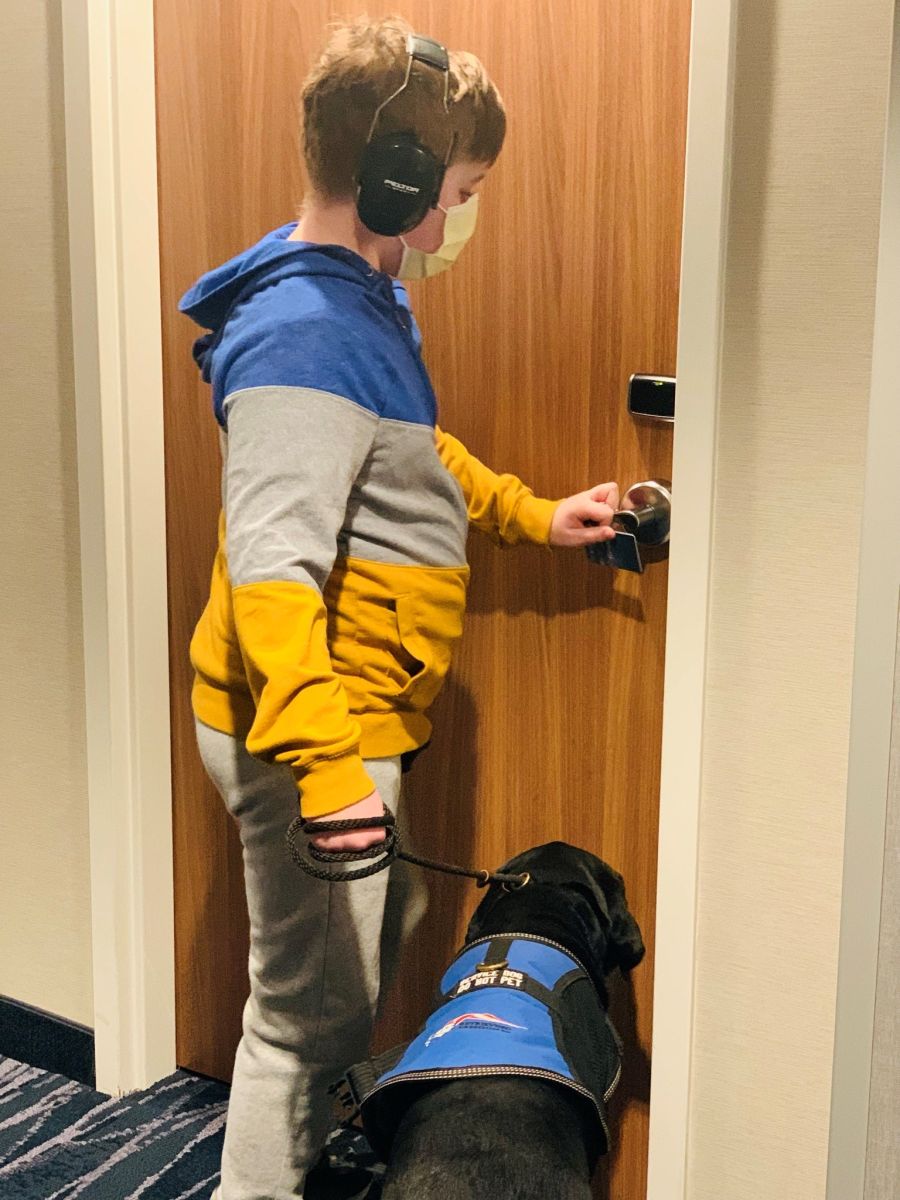Posted on: in [ General, ServiceDogs ]

Caring for a child with Autism Spectrum Disorder (ASD) is a journey filled with love, challenges, and unique experiences. While it's a path of deep connection and learning, it also comes with its own set of stresses that can impact the caregiver's well-being. Here are some insights into the stressors faced by caregivers, with references from the study "Above and Beyond Safety: Psychosocial and Biobehavioral Impact of Autism-Assistance Dogs on Autistic Children and their Families."
1. Fear of Danger: One of the most pressing concerns for caregivers is the safety of their child. Children with autism may have a tendency to wander or elope, which can be incredibly stressful for parents and caregivers. The fear of their child coming to harm or getting lost is a constant worry that can take a significant emotional toll.
2. Lack of Quality Sleep: Many children with autism experience sleep problems, which in turn affects the entire household. Caregivers often report sleep deprivation due to their child's irregular sleep patterns, leading to exhaustion and affecting their ability to function effectively during the day.
3. Challenges in Public Settings: Caregivers often navigate complex situations when out in public with their child. Unpredictable reactions or intense moments can sometimes occur, leading to difficult situations. These challenges can feel overwhelming and may lead to a sense of being misunderstood or judged by others.
4. Behavioral Issues: Managing behavioral issues is a significant part of caring for a child with autism. These behaviors can be difficult to predict and manage, often requiring constant vigilance and intervention from the caregiver, adding to their daily stress.

The study by Tseng (2022) highlights the positive impact of Autism-Assistance Dogs (AADs) in alleviating some of these stressors. AADs are trained to ensure the safety of the child, preventing elopement and mitigating meltdowns. The presence of an AAD has been shown to reduce chronic stress in both the child and the caregiver, leading to a calmer household and improved quality of life.
While the journey of caring for a child with autism is demanding, understanding and addressing these stressors is vital. Support systems, including the introduction of service animals, can provide significant relief and improve the well-being of both the child and the caregiver. As we continue to learn and adapt, the bond between the child, caregiver, and supportive companions like AADs becomes a source of strength and comfort.
.jpg)
Tseng, A. (2022). Brief Report: Above and Beyond Safety: Psychosocial and Biobehavioral Impact of Autism-Assistance Dogs on Autistic Children and their Families. Journal of Autism and Developmental Disorders, 52(1), 1-10. https://doi.org/10.1007/s10803-021-05410-0


0 comments